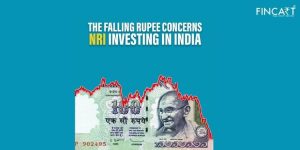Table of Contents
ToggleYou might have heard your older family members reminiscing about the old days saying things like, “Back in our day, things were much cheaper. You could buy a kilo of sugar for just Rs. 2!” When you were younger you may have also noticed that your favorite chocolates and snacks were priced much lower than they are today. Even when sold at the same price, it’s evident that the quantity of snacks has significantly reduced. This phenomenon is inflation. It affects the lives of people and the economy of a country at large. It plays a very important role in shaping financial planning and investment strategies.
In this article, we will discuss ways to hedge your finances against inflation. But before we look at the strategies to beat inflation, let us understand what it is exactly, how inflation in India is calculated, and look at the impact of inflation on investments. It is important to be well-armed with the knowledge to take down this beast and successfully manage your finances.
What is Inflation?
So what is inflation? Technically, it is the gradual increase in the general price level of goods and services in an economy over some time. In simpler terms, it means that you need more money to buy the same items you could have bought for less in the past, that is, your money loses purchasing power. This is the reason why a small amount of money in the past could buy more than the same amount today. The extent of inflation in India is measured as a percentage and is calculated every year.
Let us use an example to understand inflation’s meaning better. Suppose you want to buy a bike. You calculate that if you put aside money each month, you will be able to buy the bike after one year. As you diligently save without making any investments, you eagerly await the day when you can afford your dream bike.
However, after a year has passed, you discover that the price of the bike has risen. This could be due to higher demand or production costs, there are many reasons. Now you need more money to buy that same bike. This is inflation, and it has caused your money to lose value.
How Inflation Rate Is Calculated In India?
The government of India measures the inflation rate mainly through two main indices – the Wholesale Price Index (WPI) and the Consumer Price Index (CPI).
-
- Wholesale Price Index or WPI as the name suggests, is used to track changes in the prices of goods at the wholesale level. It includes a basket of 697 items categorised into three groups – manufactured products which carry the most weight, primary products like food, and power and fuel products. The calculation of WPI is based on the average prices of a basket of selected goods and their respective weights.
- Consumer Price Index or CPI, on the other hand, measures changes in prices at the retail level. It focuses on a basket of goods and services commonly purchased by the average consumer, such as clothing, food, healthcare, transportation, education, housing etc. and is based on 260 commodities. The CPI is considered more important for consumers, as it directly reflects the cost of living and can have a direct impact on household budgets.
In recent years, the Reserve Bank of India shifted from WPI to CPI as the main index to calculate inflation.
Here is how to calculate inflation using the Consumer Price Index:
CPI = (Cost of a basket of goods in the current year/ Cost of a basket of goods in the base year) *100
Once you have the CPI for two years, inflation can be calculated by
Inflation = ((CPIx+1 – CPIx)/ CPIx))*100
Where CPIx represents the initial Consumer Price Index for the base year, and CPIx+1 represents the Consumer Price Index for the following year. This formula measures the percentage change in CPI between the two years, reflecting the inflation rate.
Impact of Inflation on Investments
Let’s take an example to understand the impact of inflation on investment. Suppose you invested ₹1 lakh in a savings account which gives you an annual return of 7%. After one year, you make ₹7 thousand on your investment, which is pretty good right? Now let’s say the inflation rate is 8%. At that point, did you turn a profit? You did not. Your investment was not able to keep up with the inflation rate.
Here are some key pointers to understand the effects of inflation on your investments:
-
- It causes the erosion of the purchasing power of your money. This is the primary consequence of inflation. When prices rise, your money can buy less, which means that if you want to maintain your standard of living, your investment returns need to outpace inflation.
- If you don’t adjust your savings for inflation, you will find it challenging to support yourself during your retirement years.
- Inflation affects low-income consumers more significantly than it does high earners because they allocate a larger portion of their income toward essential expenses like food, which continues to rise in price.
- When inflation gets too high, central banks increase interest rates. This makes borrowing money more expensive for everyone, which can slow down the economy and reduce inflation. However, when interest rates rise, bond prices tend to fall, impacting your fixed-income investments.
- Investments in assets like real estate, and equities such as stocks can serve as a good hedge against inflation. These assets tend to rise in value as prices increase, making them valuable additions to an investment portfolio during inflationary periods.
- Your long-term planning is also affected by inflation because it can erode the real value of your savings and investments and make reaching your financial goals more challenging over time.
- As you can see, the impact of inflation can weigh heavily on your investments
Also Read: How to Factor Inflation in Your Retirement Planning?
Strategies to Beat Inflation
The key to beating inflation is to ensure that your investment returns surpass the inflation rate. Savings are great, but they’re not a very good hedge against inflation as the interest rates are often not very high. You can invest your savings and win the race against inflation. Here’s how:
-
- Diversify your portfolio. A well-diversified portfolio includes a mix of stocks, bonds, real estate, and other assets that can mitigate the effect of inflation, while also reducing overall risk.
- Investing in equities such as stocks can be a powerful way to combat inflation. Historical data shows that stocks have provided returns that have exceeded inflation rates over the long term.
- In recent years, many equity mutual funds have also returned over 10% so investing in them can also be a good strategy to beat inflation.
- Real estate has also historically shown it appreciates that outpaces the inflation rate, making it a great investment. No doubt it does take a large amount of capital to invest in this sector but those without a large corpus can always invest in it through Real Estate Investment Trusts or REITs.
- You can also consider allocating a part of your portfolio to gold as it has also been shown to appreciate or at least maintain its value during times of inflation.
- Inflation-indexed bonds (IIPs) are offered by the Government of India and they are specially designed to provide returns that outpace inflation. You can invest in this bond which is supervised by the RBI.
- Regularly review your portfolio as economic conditions change and make adjustments as needed to stay aligned with your financial goals and changing inflation rates. While this can be challenging, maintaining a long-term perspective can help you weather short-term market fluctuations. If you need investment advice, you can always consult an experienced investment planner.
- Keep an eye on interest rates and adjust your investments accordingly when interest rates rise or fall.
Conclusion
Inflation is like a sneaky thief that’s always lurking in the background, ready to mess with your investment plans and financial well-being. So, it’s important to understand how it can impact your investments. But by following the strategies we’ve just discussed, you’re not only shielding yourself from inflation’s blows but also grabbing the opportunities it brings. Savings will only take you so far. A smart investment strategy is your ticket to growing and preserving your wealth even in the face of inflation.




